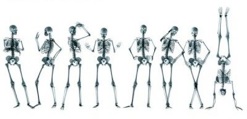A National Science Foundation Research Experiences for Undergraduates Site
Department of Anthropology, University of Notre Dame, Notre Dame, IN 46556


A brief overview of scientific ethics was introduced early in the Summer 2000 program and the results proved quite provocative. Students commented on topics raised in that early lecture throughout the remainder of the summer session - on field trips, with guest lectures, in their final projects, during informal gatherings. In their final course evaluations, participants applauded this segment of the course, indeed requesting even greater 'after school' contact with faculty and a forum for discussion of ethical issues.
These requests led to the creation of an evening ethics seminar for the NSF-REU Summer 2002 course, held once a week in a setting away from the lab and the normal routines of the program. Issues related to scientific conduct, the politics of excavation, treatment of artifacts, and repatriation were the topics of discussion.
These seminars provide an informal atmosphere to facilitate open conversation. This forum likewise permits direct interaction with leading scientists on an informal and personal level. Likewise, students begin thinking ethically by watching and listening to leading scientists model this activity within group discussions. The evening ethics dinners have become a highly valuable pedagogical tool, far more effective than lectures about ethics in the normal classroom setting.
Ethics Discussions & Meals
Ethical scientific conduct, science as a way of knowing, the politics of excavation, ownership of the past, and repatriation issues will be discussed in a series of lunches with faculty.
-
 This session is devoted to countering a dominant tendency among undergraduates to believe that science is valueless or a-ethical.
This session is devoted to countering a dominant tendency among undergraduates to believe that science is valueless or a-ethical. -
 Several of our speakers have been leading voices in shaping current repatriation policy in the US, so readings from both sides of the issue will be assigned prior to the ethics dinner.
Several of our speakers have been leading voices in shaping current repatriation policy in the US, so readings from both sides of the issue will be assigned prior to the ethics dinner. -
 Another contentious issue relates to ownership of the past. The political use (and abuse) of archaeological findings is an emotional and immediate concern in many parts of the world.
Another contentious issue relates to ownership of the past. The political use (and abuse) of archaeological findings is an emotional and immediate concern in many parts of the world. -
 We will likewise discuss the illicit antiquities trade in the Near East, as well as the use of non-provenienced artifacts and remains in scientific study.
We will likewise discuss the illicit antiquities trade in the Near East, as well as the use of non-provenienced artifacts and remains in scientific study.
The primary focus of these sessions is not that the students come to the right conclusion but that they are exposed to issues impacting their research.

From: Inmagine.com (image #icn3d001050)

.








